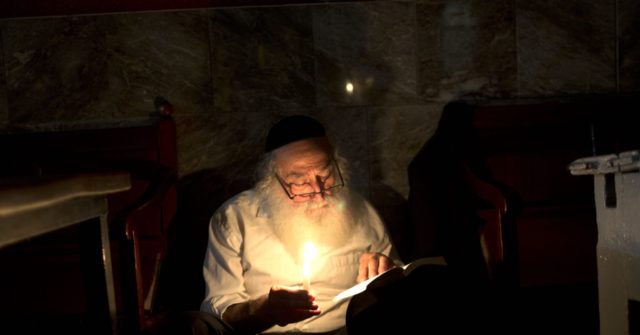I'm writing this from the hospital, where I spent the night with my wife and newborn baby, whose name is Amira Leah. Though it is a happy time, I will be fasting today for the Jewish day of mourning known as Tisha B'Av.
I tried scheduling a post for Saturday, which was the Sabbath before Tisha B'Av. Though it is also notable for the fact that synagogues around the world begin the Book of Deuteronomy ("Devarim" ), the Sabbath before Tisha B'Av is also known as Shabbat Chazon, the Sabbath of Vision, so named because of the reading that traditionally accompanies the the first portion of Deuteronomy, which is the first chapter of the Book of Isaiah. Isaiah has a vision that begins with destruction but ends with salvation, and notes that salvation is within the people's own power to bring about: "Learn to do good, seek justice, strengthen the robbed, perform justice for the orphan, plead the case of the widow." (1:17)
That's the kind of vision from which, at its best and most sincere, the idea of "social justice" draws its inspiration. But that justice does not come at the expense of faith, or freedom; rather, it must be the expression thereof.
https://www.breitbart.com/faith/2020/07/29/tisha-bav-jewish-holiday-mourns-national-destruction/
https://www.chabad.org/library/article_cdo/aid/703951/jewish/Shabbat-Chazon.htm
https://www.chabad.org/library/bible_cdo/aid/15932/jewish/Chapter-1.htm
This week’s portion launches the great story of Abraham, who is told to leave everything of his life behind — except his immediate family — and to leave for “the Land that I shall show you.”
There’s something interesting in the fact that Abraham is told to leave his father’s house, as if breaking away from his father’s life — but his father, in fact, began the journey, moving from Ur to Haran (in last week’s portion). His father set a positive example — why should Abraham leave him?
Some obvious answers suggest themselves — adulthood, needing to make one’s own choices, his father not going far enough, etc.
But I think there is another answer. Abraham (known for the moment as Abram) needs to establish his own household. This is not just about making one’s own choice, but really about choosing one’s own starting point. It’s starting over.
Sometimes we start over in fundamental ways even if much that surrounds us remains the same. Sometimes the journey we have to ...
The story of Noah is familiar; the details, less so.
Noah is often seen as an ambivalent figure. He was righteous -- but only for his generation. What was his deficiency?
One answer suggests itself: knowing that the world was about to be flooded, he built an Ark for the animals and for his own family -- but did not try to save anyone else or to convince them to repent and change their ways (the prophet Jonah, later, would share that reluctance).
Abraham, later, would set himself apart by arguing with God -- with the Lord Himself! -- against the destruction of Sodom and Gomorrah, saying that they should be saved if there were enough righteous people to be found (there were not).
Still, Noah was good enough -- and sometimes, that really is sufficient to save the world. We don't need heroes every time -- just ordinary decency.
Hi all -- as I noted last month, I'm going to be closing down my Locals page, at least for tips and subscriptions -- I may keep the page up and the posts as well, but I'm no longer going to be accepting any kind of payment.
Look for cancelation in the very near future. Thank you for your support!













